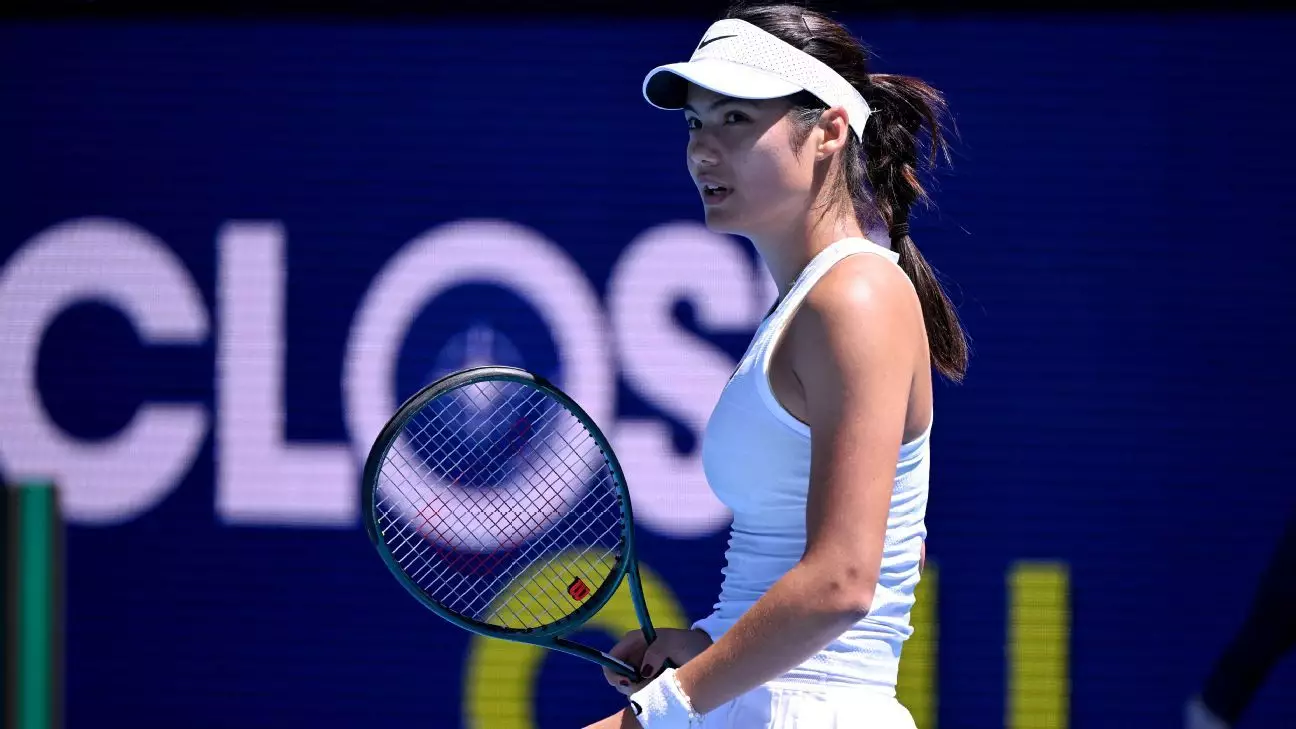In a world where sports often forge fierce rivalries, the dynamic between Emma Raducanu and Andy Murray serves as a reminder of the finer emotional threads that connect professional athletes. Following Raducanu’s unexpected withdrawal from their much-anticipated mixed doubles appearance at Wimbledon, an event seen as Murray’s grand farewell, the tennis community buzzed with speculation about potential animosity between the two. Raducanu’s decision was dictated by physical discomfort in her right wrist, an injury that not only prevented her from supporting a fellow British icon but also overshadowed her commendable run to the fourth round of the women’s singles—her best performance at a Grand Slam since her meteoric victory at the US Open in 2021.
Healing After Misunderstanding
Fast forward to the Australian Open, and the narrative surrounding Raducanu and Murray has taken a more positive turn. They no longer find themselves entangled in the web of “bad blood.” After securing a hard-fought victory over Amanda Anisimova, Raducanu opened up about her feelings regarding her previous decision, revealing the genuine care she holds for Murray. She communicated an earnest apology, expressing her hope that her withdrawal had not caused resentment. This sentiment, accompanied by Murray’s understanding response, illustrates a mature handling of a situation that could have easily spiraled into personal discord.
Murray, who now finds himself in a new coaching role for fellow competitor Novak Djokovic, is on a different journey in the tennis world. The transition from player to mentor has likely provided him with the perspective needed to view Raducanu’s situation not just through the lens of disappointment, but also with understanding—an essential quality in any competitive environment.
Raducanu’s focus is now directed toward the upcoming match against Iga Swiatek, the world No. 2, bringing with it a mixture of excitement and introspection. Despite the lingering effects of her wrist issue—a reminder of her physical limits—she expressed enthusiasm for the challenge that lies ahead. This match will not only serve as a test of her skills against a consistently high-performing opponent, but also as a measure of her resolve as she navigates the expectations she places on herself, which can often be more daunting than external pressures.
As she prepares for this encounter, Raducanu’s acknowledgment of Swiatek’s prowess as a top competitor speaks volumes about her growth as a player. Rather than focusing solely on her previous achievements or the weight of expectations from fans and critics, she is approaching the competition with a refreshing mindset. This maturity highlights her capability to learn and adapt—a critical asset in the evolving landscape of professional tennis.
The rapport between Raducanu and Murray, now strengthened and devoid of previous tensions, symbolizes a pivotal shift within British tennis. As they both carve their paths—Murray transitioning to a coaching role and Raducanu embracing her emerging status—there’s a sense of camaraderie that transcends the court. The positive interactions during this Grand Slam indicate a healing of past misunderstandings, reinforcing the idea that even amidst competition, mutual respect can flourish.
Ultimately, their story is a testament to the sport’s capacity for connection, growth, and reconciliation, reminding fans that behind the aces and rallies lie complex relationships that enrich the narrative of tennis.

